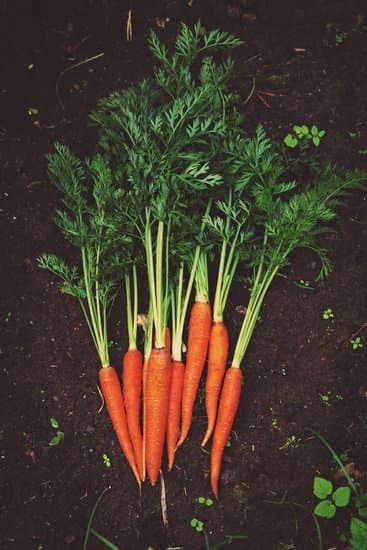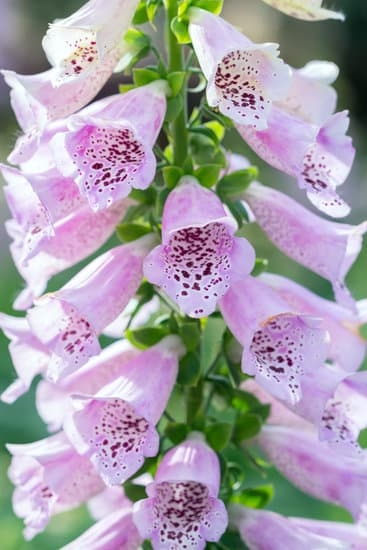Introduction
Gardening is so much more than a hobby—it can have far-reaching impacts on overall wellbeing. On the physical side, gardening helps to improve muscle strength, endurance, flexibility and balance. Weeding and digging are excellent sources of cardiovascular and aerobic exercise and can be adjusted to fit any level of ability. It also contributes to better nutrition as you can proudly harvest your own fruits, vegetables, herbs and other edible plants for tasty home cooked meals. Of course, there’s more to the health benefits of gardening than physical fitness; it has been connected with reducing symptoms associated with stress, anxiety and depression due to increased contact with nature and environment. Additionally, gardening encourages socializing through community or private gardening groups as well as creating an opportunity to relax in nature and bolster relationships. Gardening offers up numerous environmental benefits such as natural pest control which decreases chemical use around our homes while simultaneously helping local wildlife habitats thrive. Whether you are looking for a physical challenge or want to de-stress after a long day at the office (or both!), everyone can reap these many rewards through even a few moments of outdoor time in the garden each day.
Health Benefits
Gardening can provide many health benefits. Physically, it can help improve strength, balance, and coordination because of the lifting, bending and stretching involved in activities like planting, weeding, and harvesting. It is also beneficial to mental health due to its soothing effects and ability to bring focus. Scientific research has found that gardening reduces anxiety and stress levels while improving mood and self-esteem, thanks in part to the low-intensity exercise involved. Furthermore, gardeners are more likely to consume more fresh fruits and vegetables which may lead to an overall healthier diet.
The best gardening activities for boosting physical and mental health benefit include light activities such as water conservation methods like creating raised beds or installing drip irrigation which both require sustained effort but no heavy lifting; deadheading flowers which uses clipping for a satisfying visual result; or plant pruning that encourages growth by shaping plants’ foliage or removing dying branches or leaves. These tasks may be done from the comfort of a garden bench or seated beneath a tree enjoying the sunshine – allowing people to enjoy the outdoors without having to over exert themselves.
Nutrition
Gardening can be an excellent way to get some daily exercise and exposure to the sun, while also providing a wide range of nutritional benefits. Research suggests that growing your own plant-based foods can provide many essential vitamins and minerals. Not only is home-grown produce often fresher than what you can buy in stores, since it is not picked when still unripe, but home gardens tend to have fewer pesticide residues than commercially grown foods.
For example, studies show that fruits grown in a garden are higher in vitamin C than store-bought fruits and vegetables. Tomatoes from home gardens contain significantly more carcinogenic flavonoid compounds compared to store-bought tomatoes. Similarly, nutrient levels for cabbages and leafy greens like spinach harvested from gardens are often higher than those bought from supermarkets. Even herbs such as rosemary have higher levels of polyphenols when planted at home.
In addition to vitamins and antioxidants, gardening provides access to vital micronutrients like magnesium, calcium, iron and potassium. Many urban gardening initiatives now focus on growing food with concentrations of nutrients such as zinc or trace elements such as selenium associated with improved health outcomes like reducing the risk of cancer or diabetes. Gardening also provides you with fresh organic produce free from artificial chemicals or preservatives which could otherwise be damaging to your health over long periods of time.
Stress Relief
Gardening can be an effective form of therapy and an effective way to reduce stress. Working in the garden has been proven to stimulate the parasympathetic nervous system, which helps to create a relaxed feeling. Gardening can also create positive feelings due to performing productive tasks that can help promote a sense of purpose and wellbeing. Additionally, nature provides its own ambient pleasure, as studies have concluded that simply being around living plants and greenery helps us become calmer and more attentive.
On a physical level, gardening provides exercise. Doing continuous activities such as mowing the lawn or digging up weeds is great for toning muscles, increasing flexibility and improving circulation which releases endorphins- hormones with positive psychological effects that in turn help lower stress levels. The repetitive tasks served by gardening also assists by allowing our minds to focus on something other than negative or stressful thoughts meaning many people report less anxiousness after completing their gardening goals.
In summary, gardening offers benefits beyond growing plants; it’s an opportunity to find peace in mind and body while nurturing nature.
Physical Activity
Gardening offers multiple physical benefits. It can provide a moderate cardiovascular workout as you work to pull weeds, move soil, or handle heavy objects. All of the kneeling and reaching you do while gardening can also help strengthen your lower body muscles and improve joint flexibility. Additionally, the fine motor coordination needed when planting seeds and weeding beds can build strength in your hands and forearms. Gardening is also a great way to enjoy some fresh air, soak up some Vitamin D from the sun’s rays, and potentially socialize with others in the process.
Community Benefits
Gardening can be an incredibly beneficial activity from both a physical and mental standpoint. It has been known to reduce stress levels, improve air quality, and promote physical activity. In addition to the individual benefits of gardening, it can also provide many social advantages for communities. Gardening is a great way to build meaningful collaborations with neighbors, encouraging them to come together, work on projects as a team, and stay connected in an increasingly digital world.
Through gardening activities such as potluck dinners or a communal vegetable patch shared by members of the community, individuals have the opportunity to share stories and personal experiences with each other. This offers people with different backgrounds and beliefs the chance to connect with each other and foster mutual understanding. As well, there are often volunteer opportunities offered at local gardens that allow residents from all walks of life to come together around a common cause and further strengthen the ties within their community. Additionally, community gardens also provide educational opportunities around topics related to sustainability such as composting or zero-waste principles that allows people of all ages to learn more about how locally grown food or environmental issues can impact their community functioning better in the future. All in all, gardening can bring many different benefits for individuals and entire communities alike that should not be overlooked!
Mental Clarity
Gardening is a great way to promote mental clarity. Gardeners have the opportunity to create positive soundscapes by skillfully combining plants and natural elements, like water features and birdbaths, to produce calming and peaceful experiences. Furthermore, the smells associated with gardening can be both calming and invigorating – the heady scent of jasmine blooms or freshly mowed grass can help someone relax, while the sharp aromas emanating from aromatic herbs or rosemary can help them maintain focus. Finally, gardening offers a visually stimulating environment that contributes to overall wellbeing: an array of vibrant colors, different textures and shapes can all contribute to feelings of relaxation. All these factors together can create an environment which helps foster clearer thinking and in turn provide clarity on various issues.
Emotional Support
Gardening is a great way to improve wellbeing, mentally and emotionally. Whether it’s out in nature or from the comfort of your own home, taking the time to tend to plants can provide a sense of connection with others and nature. Gardening helps to reduce stress and anxiety, increase happiness and satisfaction, encourage social interaction, and improve overall mood. Engaging in gardening activities allows you to express creativity through designing patterns or learning new skills such as crop rotation or landscape design. Growing flowers can be an appreciation of beauty while growing vegetables can be fulfilling in terms of knowing that you are caring for something and providing sustenance with your own labor. Interacting with other people who enjoy gardening can be another way to support each other while deepening relationships across different cultures in an effort to share garden knowledge. Every region offers unique opportunities when it comes to gardening; exploring those around you teaches more than just how plants grow – it also serves as a reminder that we all are part connected by our love for nature and the phrase “one small leaf can start a forest”.
Aesthetics
Gardening has a well-documented ability to lift people’s spirit and boost their mood. This is largely attributed to its intrinsic beauty. Growing different types of plants, flowers, trees, and vegetables can fill your garden with an array of colours and smells that aren’t ordinarily seen in everyday life. Bringing them into your backyard gives you the opportunity to admire them up close and personal. When looking at a garden full of lively plants, their colours create an inimitable visual effect which soothes the soul. This effect is only enhanced when blossoms start blooming and special aromas from different plant varieties flood the garden – giving it an even more vibrant feel. Nature can also be shaped however we want using creative gardening techniques like topiary or tree-shaping to inject unique shapes or patterns into our gardens. Watching our gardens grow can also be extremely satisfying – cultivating complex but stunning works of art with our own hands, with little more than natural resources and some TLC!
Cost Savings
Gardening can be an incredibly cost-effective way to provide yourself with a steady supply of delicious and healthy foods. There are some important factors to consider when assessing the potential financial gains from gardening, including the initial investment for supplies and equipment, the cost of soil improvements or amendments, the time spent tending to the garden, and any losses due to pests or plant diseases.
When weighing up expenses and potential profits, it’s important to factor in any startup costs related to setting up your garden. Buying necessary equipment such as hand tools, containers, hoses, compost tumblers etc., can be pricey but also invaluable investments that will help you create a productive vegetable garden over time.
Another cost associated with gardening is soil amendments or fertilizers used at planting time or throughout the growing season. Although these can be expensive upfront costs in terms of improvementing your soil’s fertility – they are essential investments that will pay off in spades when you start harvesting your own fruits and vegetables.
High-value crops such as tomatoes and peppers may ultimately bring greater returns if factored into expenses and profits when considering how gardening can help you financially. Plus there’s always the potential sale of extra produce surplus at local farmers’ markets if going commercial isn’t quite your thing. Either way, you’ll save money off grocery store prices by creating your own perfect backyard harvest!
Conclusion
Gardening is a hobby and lifestyle choice with many physical, mental, and spiritual benefits. Not only does it get you outside in nature where you can enjoy the fresh air, but it also helps to build self-esteem, increase your knowledge of plants and environment, provide physical exercise, aid in stress management and relaxation, help beautify the community while connecting people together through the joy of growing something beautiful together. Ultimately, gardening arms us with the tools we need to live a more mindful life that is beneficial for not just ourselves but our surroundings as well. So why not start planting some seeds today? Make your space more beautiful; get up on your feet more often; connect with others surrounding you and become part of a larger collective that aims for betterment of every living thing around us.

Welcome to my gardening blog! I am passionate about plants and enjoy sharing my knowledge and experiences with others. In this blog, I will write about everything related to gardening, from tips on how to get started to updates on my own garden projects.





